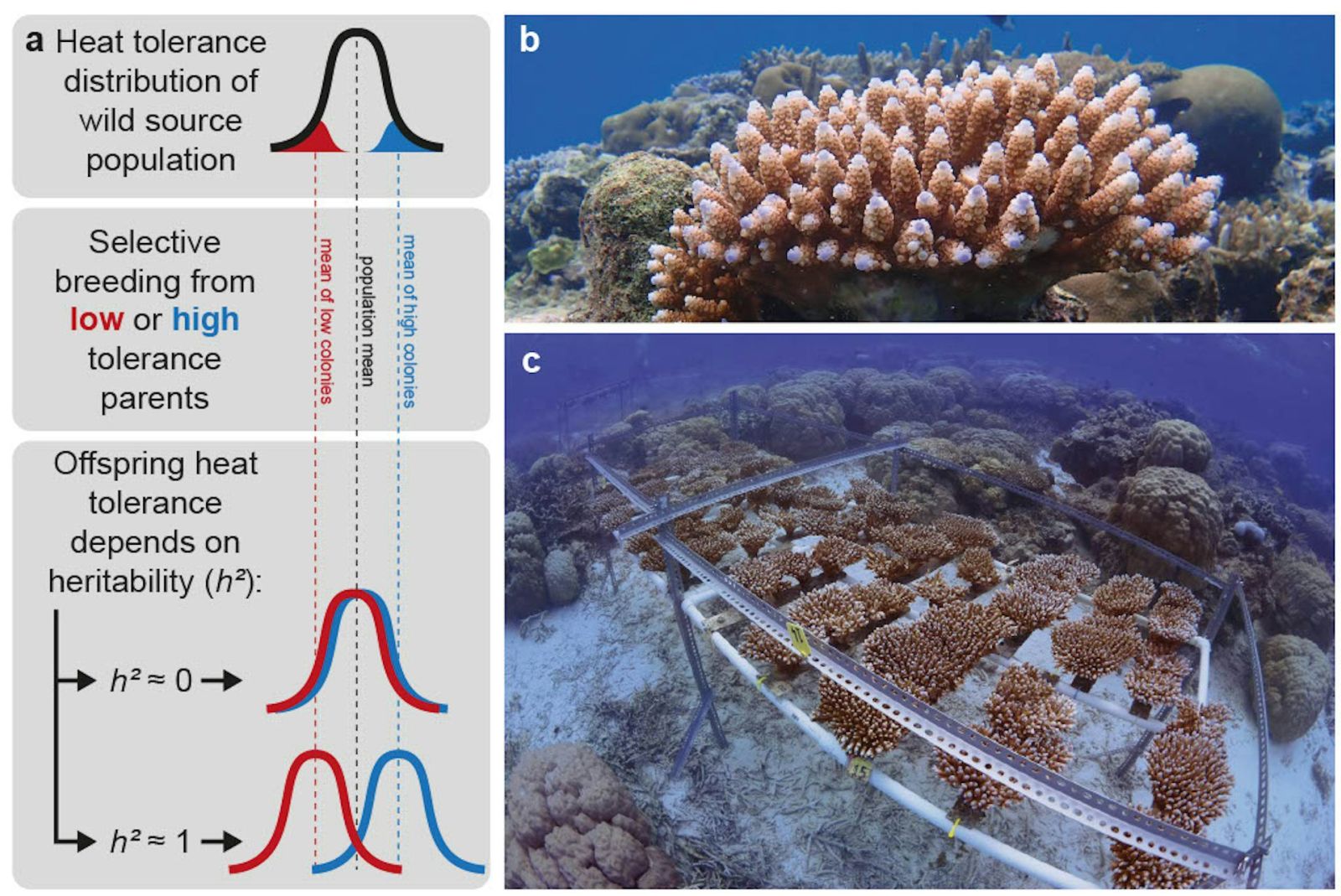Scientists create these super-corals, more resistant to heat 🪸
Published by Cédric,
Article author: Cédric DEPOND
Source: Nature Communications
Other Languages: FR, DE, ES, PT
Article author: Cédric DEPOND
Source: Nature Communications
Other Languages: FR, DE, ES, PT
Follow us on Google News (click on ☆)
The team from Newcastle University has explored an intriguing approach: selective breeding of corals. The idea is to enhance their ability to withstand the rising heat of the oceans.

a) Overview of the experimental setup and examples of (b) Acropora digitifera parents and (c) their offspring at the Palau coral nursery.
Coralassist Laboratory
Coral reefs, which shelter thousands of marine species, are particularly sensitive to heat waves. The phenomenon of bleaching, caused by the expulsion of symbiotic algae, weakens them to the point of death. To address this fragility, selective breeding experiments have been conducted. Corals that are naturally more heat-resistant were selected to create more tolerant offspring.
The results are encouraging. In just one generation, the tolerance of the corals increased by about 1°C (1.8°F), allowing them to better survive both sudden and prolonged heatwaves. However, the researchers acknowledge that while these improvements are significant, they are still insufficient. The warming of the oceans is progressing at a much faster pace.
Questions remain. How can we ensure that these corals will endure in the long term in their natural habitat? And how can this method be scaled up enough to restore coral reefs worldwide?
This study offers a glimmer of hope. But without a drastic reduction in greenhouse gas emissions, even super corals may not be enough to counter the effects of climate change.
What is coral bleaching?
Coral bleaching occurs when corals experience stress, usually due to a rise in water temperature. Corals live in symbiosis with microscopic algae called zooxanthellae, which provide them with energy and their vibrant colors. When the temperature rises, the corals expel these algae, causing them to bleach and weaken.
Deprived of the algae, corals can no longer feed effectively, making them vulnerable to diseases and death. If temperatures remain high, coral death can lead to the degradation of coral reefs, threatening thousands of marine species that depend on them for habitat.
Yes, if water temperatures drop quickly enough. However, with climate change increasing the frequency and intensity of marine heatwaves, many coral reefs are not given enough time to recover, making these events more and more destructive.